I hiked along the trail, finally dried out after a wet and long winter. Despite the bright sun, the hills still looked gray, even monotone. A western meadowlark sang from a nearby bush, but no wildflowers were yet blooming.
That lack of color made the splash of bright red stand out even more, immediately drawing my eyes to it. It took seconds to process I was staring at a deer, dead but not for very long. The blood, still bright, had not yet congealed. In places it still dripped, although a good deal of the carcass had been eaten.
I approached. I saw a puff of hair, the sight of obvious struggle. The doe had then been dragged about ten feet. I could see – and there’s no delicate way to put this – its throat had been ripped out.
An obvious sign of predation. I quickly scanned the hills. I’ve never felt fear of large predators, but realizing something is nearby that could tear your throat out demands your attention. I can assure you I did no navel gazing on the rest of this hike.
Mostly, I was curious. A carcass is always a mystery for a naturalist to solve. What killed the deer?
My first thought was mountain lion. But perhaps I was violating my own wildlife-watching rule: if you are unsure, it’s probably the least exciting option. This area has a robust coyote population. I’ve seen a lot of them recently. They are known to attack deer by the throat.
Still, I sought additional clues. I found a very large hairy scat. Still inconclusive. I resolved to keep an eye on the carcass, although I knew that ravens and other scavengers would make quick work of it.
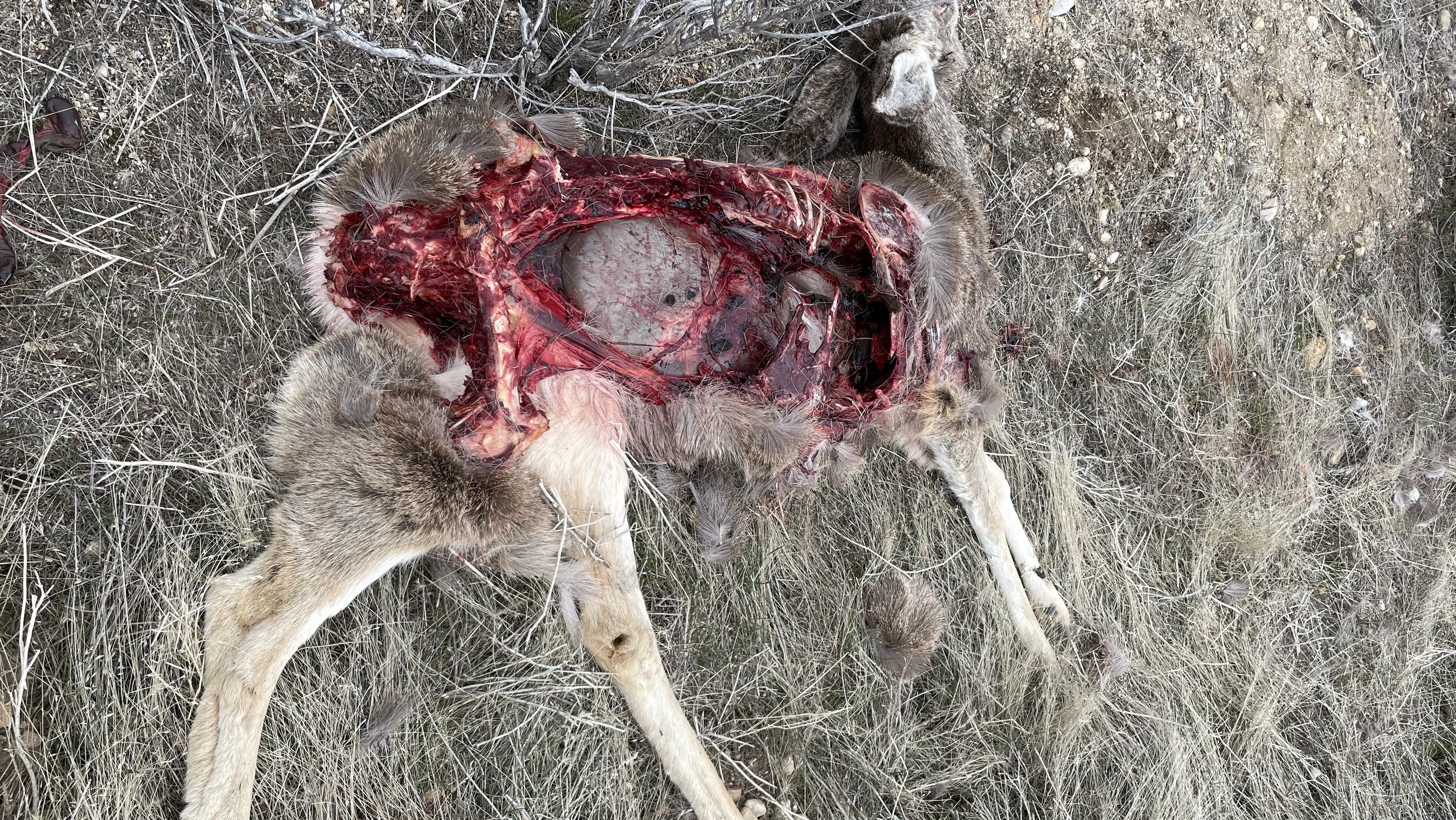
I’m always eager to share my sightings with like-minded naturalists, so I posted the photo on my preferred social media platform. Within 30 minutes, I received a notification that I had been blocked from using the site due to violating a rule, in this case “posting graphic or gory content.”
To regain my social media account, I had to immediately delete the content or face a permanent ban. I took the gory photo down. I can’t help but note that the new owner of this particular platform has made a big show of allowing “freedom of speech,” which in turn means I now daily view a bunch of conspiracy theories, misinformation and offensive material.
But a dead deer is apparently too much.
Some well-meaning people wrote me and suggested I should have just used a warning, so that potentially offended viewers could avoid my image. This never occurred to me. Yes, the deer was quite bloody and dismembered. It’s also, well, nature.
It is difficult for me to get my head around a trigger warning for natural history.
I’m sure my post was not flagged by a human but rather a program designed to ferret out bloody images. Still, I can’t help but wonder if, deep down, people still struggle with the concept of predation.
Maybe it’s time to embrace the gore. I suspect even that statement makes some readers uncomfortable.
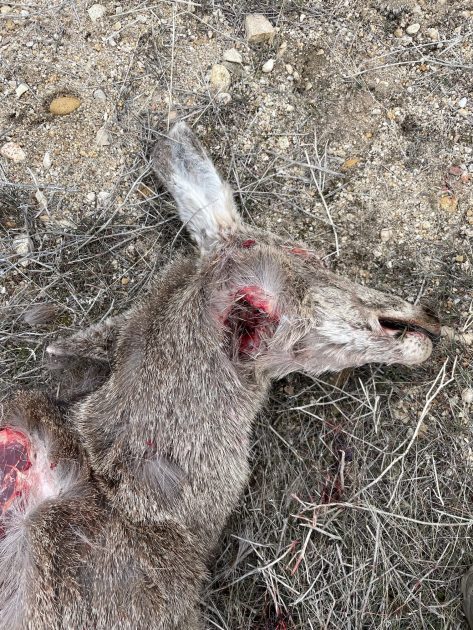
The New Case Against Predators
If you’re reading this blog, you probably know that recent human history has not been kind to large predators. They’ve been seen, especially among European cultures, as a threat to livestock and human safety, and prosecuted with little mercy.
That anti-predator sentiment is alive and well, as anyone who has followed the gray wolf situation in the Rocky Mountain West knows all too well. Ranchers and big game hunters hold banquets to fundraise to kill wolves. Large predators are still villains, just as they were in fairytales.
And many conservationists shake their fingers at this backwards thinking. They lead outreach campaigns about the importance of predators to healthy ecosystems, and rightfully so.
But there’s another view of predators that seems, one some level, equally uncomfortable with their presence. This view presents an almost sanitized image of the large predator, quickly dispatching the weak and old. It’s the predator as euthanasia agent.
Many prefer to think of predators like those in The Lion King: their role in the ecosystem is acknowledged, but you never see them actually eat a wildebeest, let alone tear into one while it’s still alive. Predators and prey join together to sing about the “circle of life.” The only sign of death that appears is when Scar, the villain, tosses a zebra leg to hyenas.
In reality, predation isn’t always pretty, at least to our allegedly refined human sensibilities. I’ve seen a Cooper’s hawk knock down a quail and begin eating it while the quail is very much alive. I will fully confess that I find such sights incredible, while also acknowledging the quail’s terror and pain.
I’ve talked to other nature writers and editors who have found that many readers have a negative reaction to showing the harsher realities of nature. Even many self-described conservationists don’t want to see images of death. They don’t want to see the realities of predation.
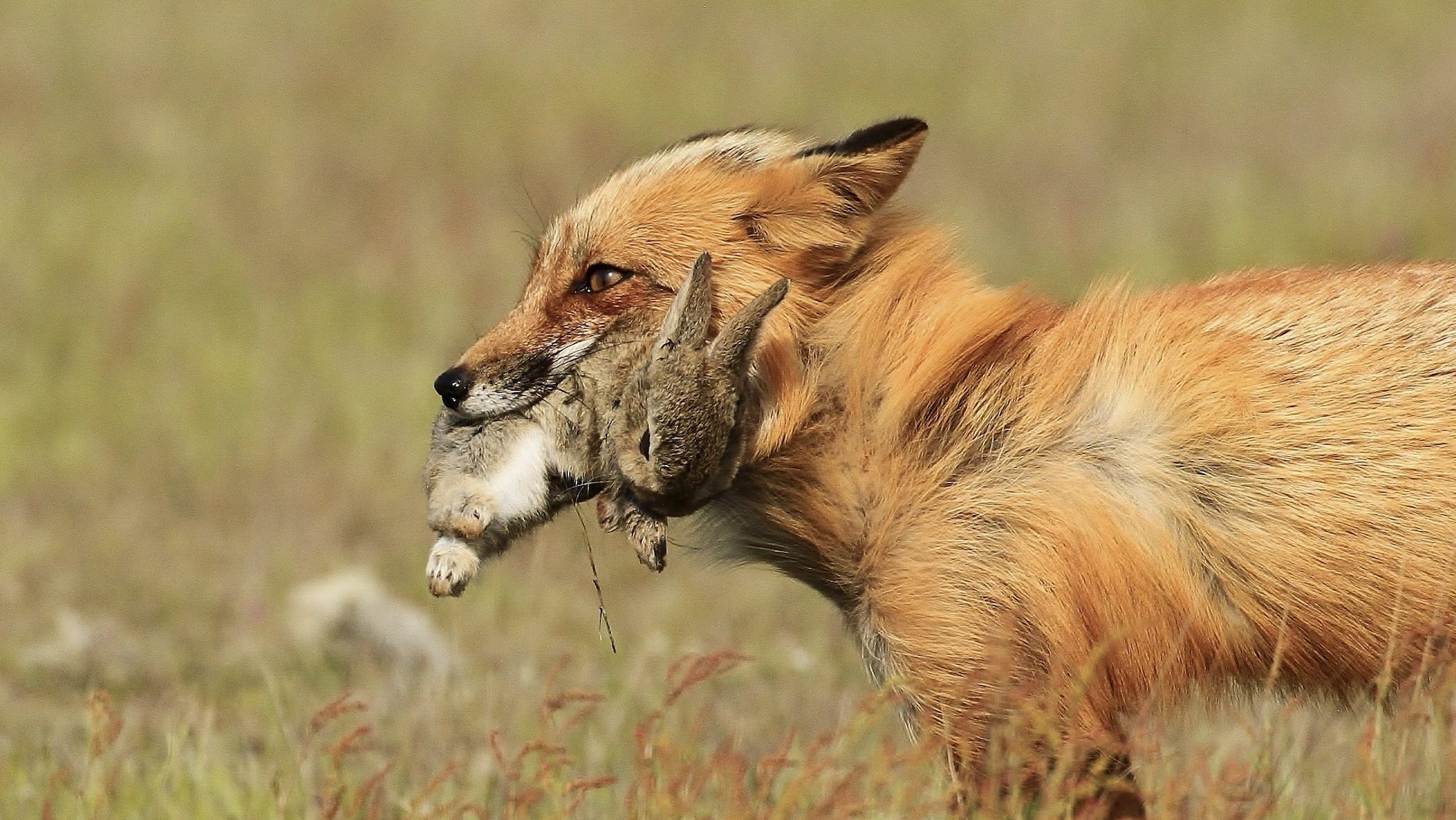
The Predator Problem
Taking this belief even further, there’s a philosophical viewpoint called “the predator problem” that posits that, if we truly care about limiting pain and suffering in the world, we must reduce or even eliminate predation. Some recent advocates have suggested we allow large predators to go extinct, gradually fading out.
The “predator problem” argument can easily be dismissed as one of those views best suited for late-night dorm room arguments or those corners of academia that ignore the living, breathing world.
Still, I can’t help but notice this idea gain legitimacy. It’s been featured in major media outlets, including The New York Times. A lot of what is called “compassionate conservation” veers closer and closer to this line, promoting the idea that conservation is not only about preserving species and ecosystems, but also about reducing suffering.
And reducing suffering is a good thing, right?
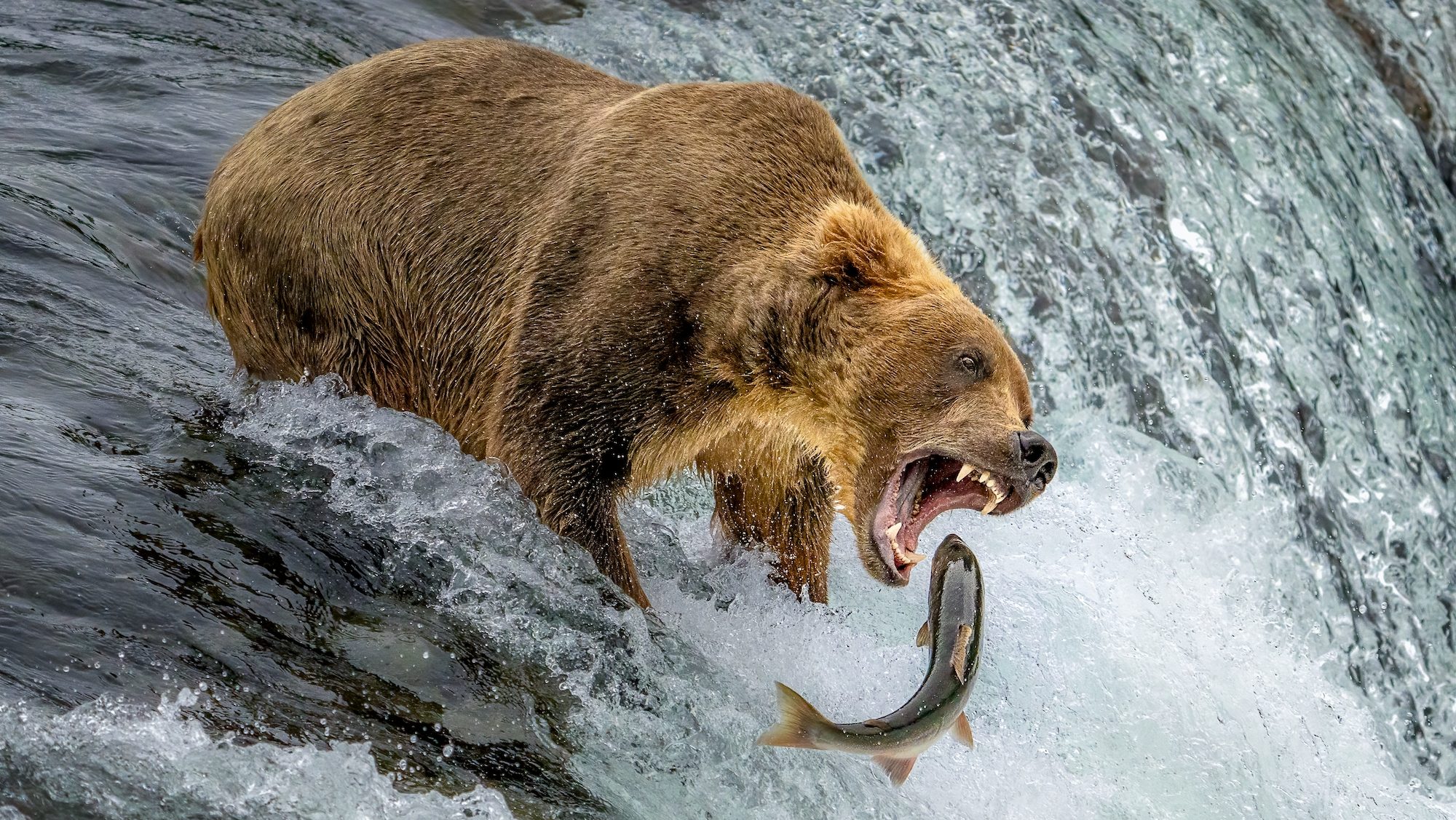
As a naturalist, the absurdity of the “predator problem” borders on disbelief. It’s interesting, for one thing, that it focuses on large predators. Articles about this philosophy inevitably feature lions or wolves. But the large ones are such a tiny component of the ecosystem. So many species eat other animals, some full time and some opportunistically.
As I write this, great blue herons line up in a local field. They’re picking off voles, small rodents that are abundant there. Do advocates of the predator problem want herons to go away, too? If not, why? Is it because rodents are smaller and therefore seem more inconsequential than a deer or a wildebeest? I suspect the vole would disagree.
And here, we approach the problem with the “predator problem.” It begins to look much like other anti-predator sentiments over the centuries. Only human values matter. Anti-predator sentiments always seem profoundly arrogant, as if we are the sole arbiters of kindness and compassion.
The “predator problem” is, ultimately, an anti-conservation view.
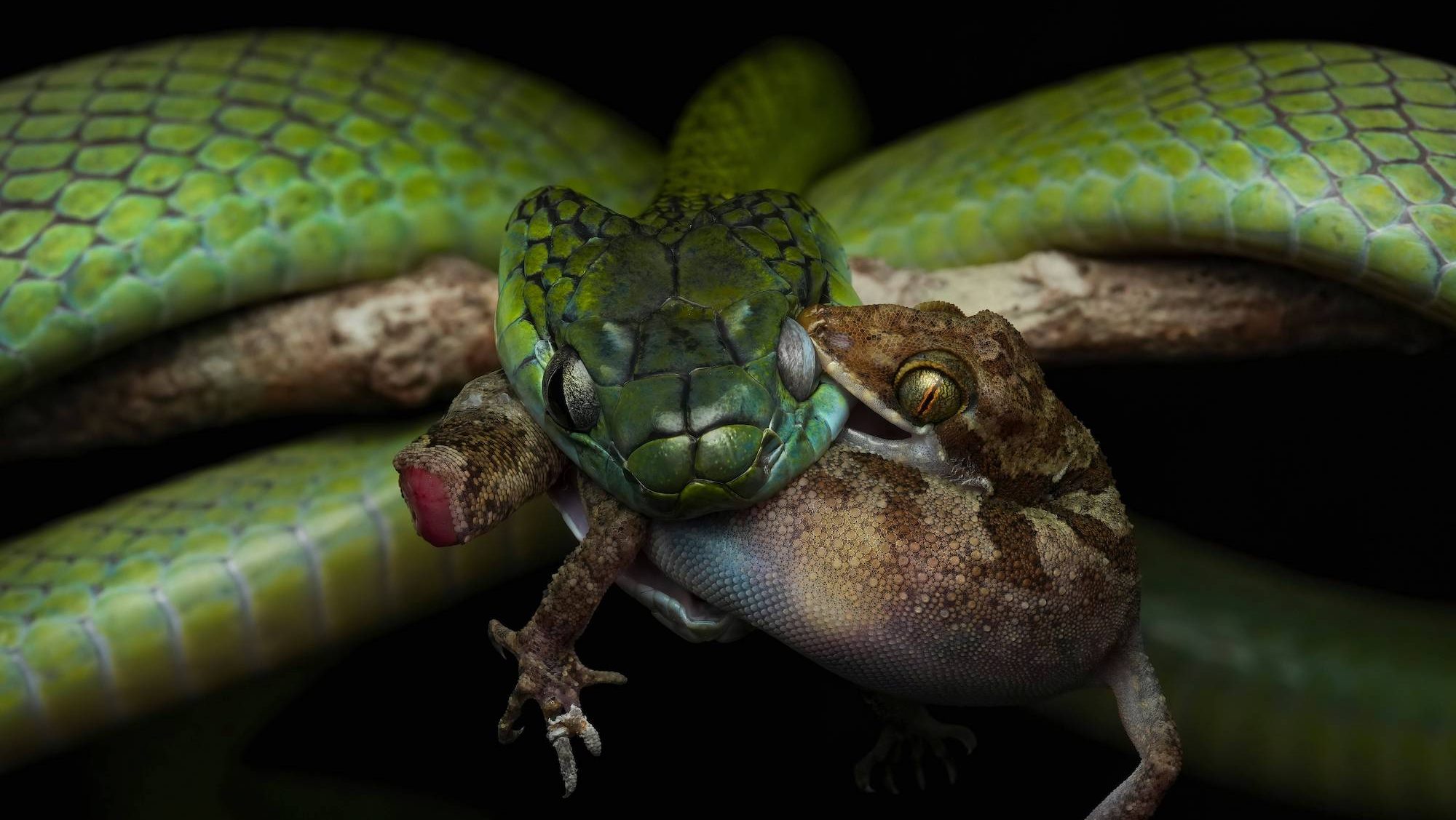
Embracing Nature, All of It
I’m often asked why I’m a conservationist. There are, of course, many answers to this. One of them is that I believe the billions of years of evolution that has resulted in the diversity of life on earth is the greatest story we will ever know. And I agree with E.O. Wilson that if we squander that diversity, future generations will find it difficult to forgive.
Predation is part of that story. A bloody, gory, unsettling part of it. I know some conservationists think that makes wildlife seem sensational. Others like the idea of predation but don’t want to see wolves tackle a bison calf.
But if we’re to have a world where people and predators coexist – a worthy goal of conservation – we have to actually know and value predators. We can’t do that by presenting simplistic images of them.
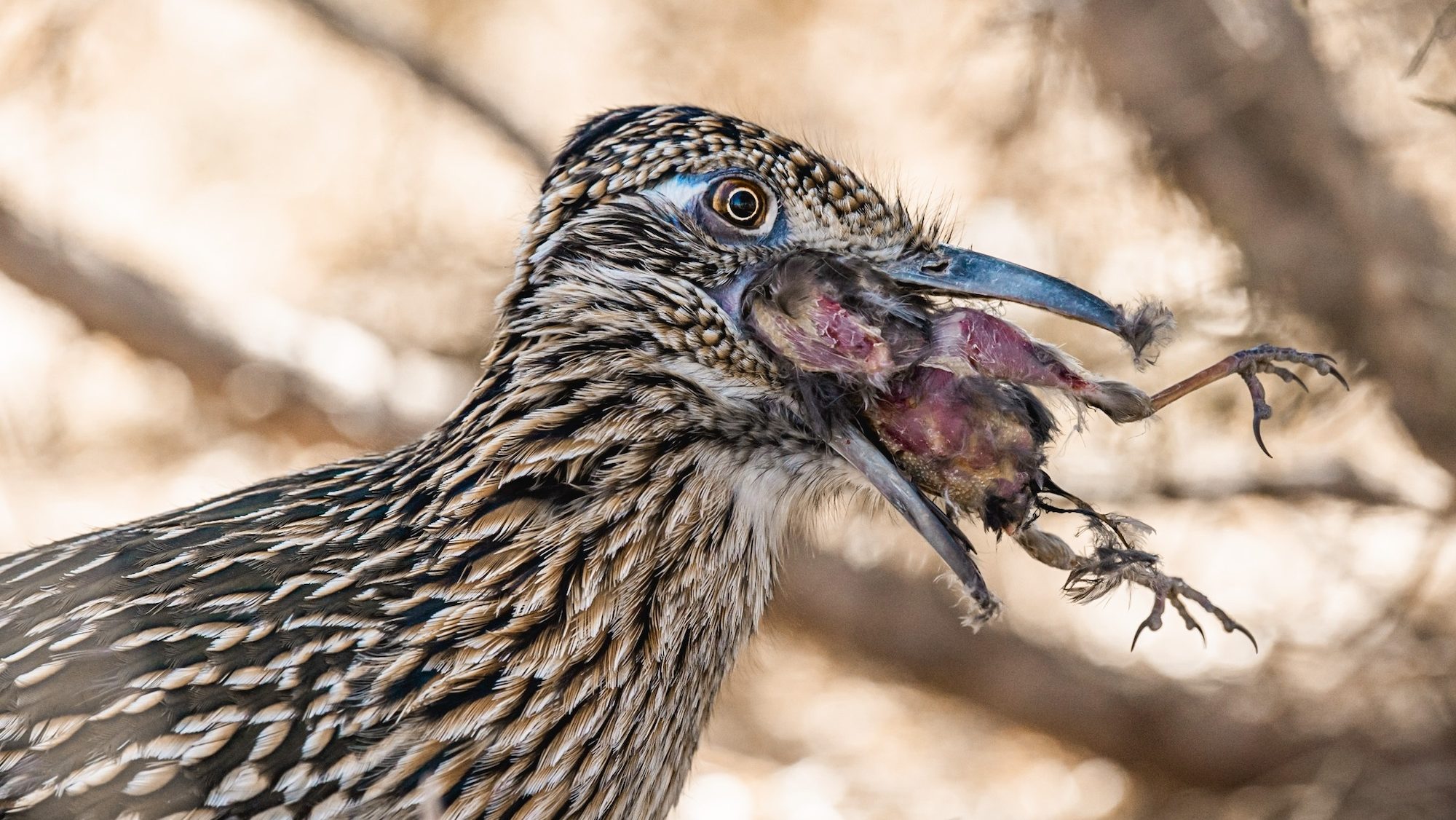
This is the world we live in. Let’s embrace it. Let’s share the scenic mountain vistas but recognize that those pretty scenes contain a lot of animals that are eating and being eaten.
When I come across a freshly killed deer, I do feel a bit of remorse for the animal that lost its life. It was a beautiful creature, with its own relationships and own desire to live.
But I also feel a sense of awe at the predator. Both have been honed over time in this beautiful, bloody, messy dance. It’s what keeps me going to the hills, and what keeps me going as a conservationist.
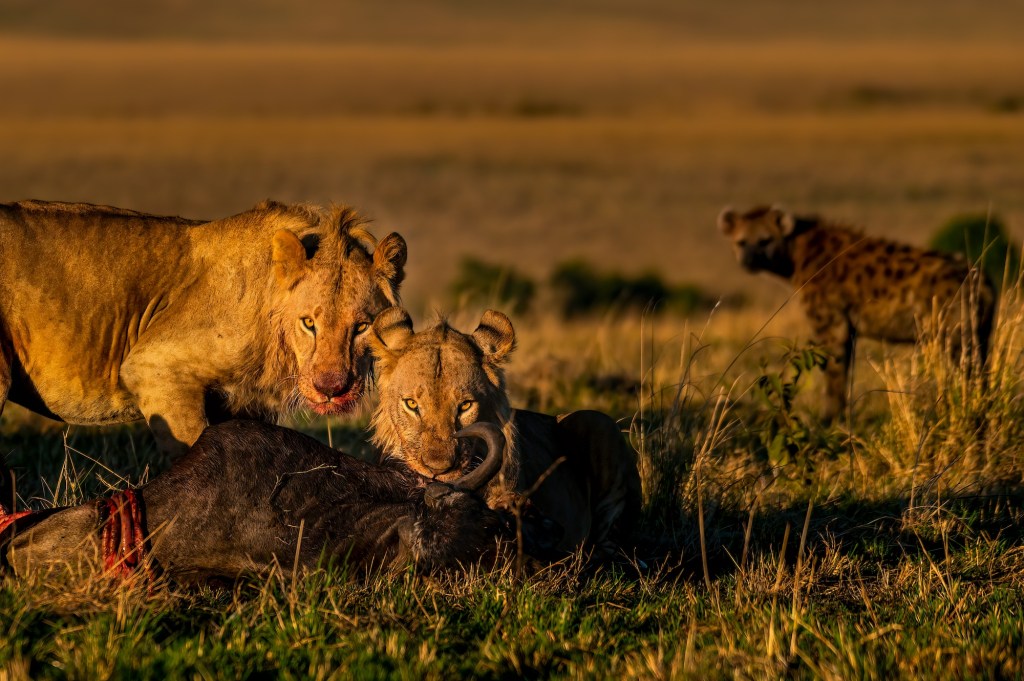



@Daniel Smith
To be fair we already have other top predators, so there is no need to bring back extinct ones. I find it pretty sad that predation exist. No I don’t believe we should hunt for predators cause I know how important they are, but still which nature find a different way to control population and to keep a species healthy.
“ It’s not a coincidence that keystone species — so named because they support an environment like a keystone supports a building — are predators. They eat quickly-reproducing prey that could otherwise overwhelm an area’s resources; this service lets animals that have slower reproductive cycles also have access to food.”
-https://www.theverge.com/2015/9/10/9308195/killing-off-wild-predators-is-a-stupid-idea
I’m not seeing an actual argument against eliminating predation here. Do you reject that reducing suffering is a good thing? If there were a predator that primarily targeted humans and ate them alive, would you oppose getting rid of that predator? If not, what’s the morally relevant difference between humans and animals such that it’s fine to allow the latter to be tortured to death but not the former?
“Only human values matter. Anti-predator sentiments always seem profoundly arrogant, as if we are the sole arbiters of kindness and compassion.”
The view that nature should be conserved is also a human value. You’re positing humans as the arbiters of what’s morally correct as well. So the objection is self-defeating.
And yet none of us are suggesting the obvious ultimate conservation move of breeding back Saber-tooth Tigers and then just letting them take our population down to its original size.
Rightly so, but I thought we liked nature? What’s up, conservationists? Modern humans are dilettantes pretending to ‘love’ the very thing we rightly spend all our time trying to avoid. The natural condition of this planet.
Nature didn’t exist for most of human history. There was just the world. Then we invented man-made environments so extensive that we needed words for everything else that wasn’t that, and later we, in our new ignorance, idealized this ‘nature’ a lot and got oddly reverential about the sad realities of predation, which is the product of a blind, mindless, extremely inefficient process called evolution by natural selection that involves unimaginable quantities of suffering that some might argue out weights all it’s joys.
Much love of ‘nature’ comes from spending time in ascetically deprived indoor environments. When we step out of our artificial caves into a green (also artificial) landscape that looks more like what we evolved to want to walk towards, we feel this rush of endorphins that gets us thinking that there is this ‘nature’ out there and that it is unambiguously *marvelous*.
In conclusion, humans are strange.
Predators are essential to maintain an ecosystem.
The majority of our evolution has been in the role of a prey animal.
Only our technology made us a predator. (From clubs to guns)
Prey animals instinctually fear predators.
We don’t really like to admit our place in the chain so such images and ideas make us uncomfortable. If everyone had to actually catch, dispatch and process their meat there would be far more vegetarians.
Its just animals nature.
Hmmm … some who cringe or complain about predation do so in between bites of their cheese burger, sushi, ahi tuna poke bowl or t-bone steak 🙂
The whole idea of the “Predator Problem” line of thought is so childishly naïve as to defy belief. Do these people not understand enough about how nature works that they don’t know removing the apex predators would only hurt animals they are trying to “save”? The overpopulation that would occur would lead to disease and starvation, much worse deaths than the quick death that predators offer.
This is such an interesting topic. I am not in the science field but volunteer at a wildlife rehabilitation centre so I see a lot of gory details.
I understand how predation works as I have watched it but I am not happy to see it while the animal is still alive… ex… a lioness caught a baby gazelle and kept toying with it to urge the parents…. I didn’t handle that well. On the other hand I am like this article where if the animal has been killed, I am totally interested in the what happened stage.
Social media plays against people’s emotions and when certain people haven’t seen many kills or dead animals, it’s hard for them to understand. I really liked this article. Thank you.
Well said! Thanks.
Thank you for this “exposé”. Whether it is my grandson asking about all the crab shells on the jetty then seeing a crab being eaten alive by a gull, or returning home after 10 days away to see a coyote disappearing into the woods (perhaps the chipmunk or vole population has shrunk in our absence), most of the predation I see is bloodless.
Predator problem? Seems to be more an issue with distraction by our constructed realities.